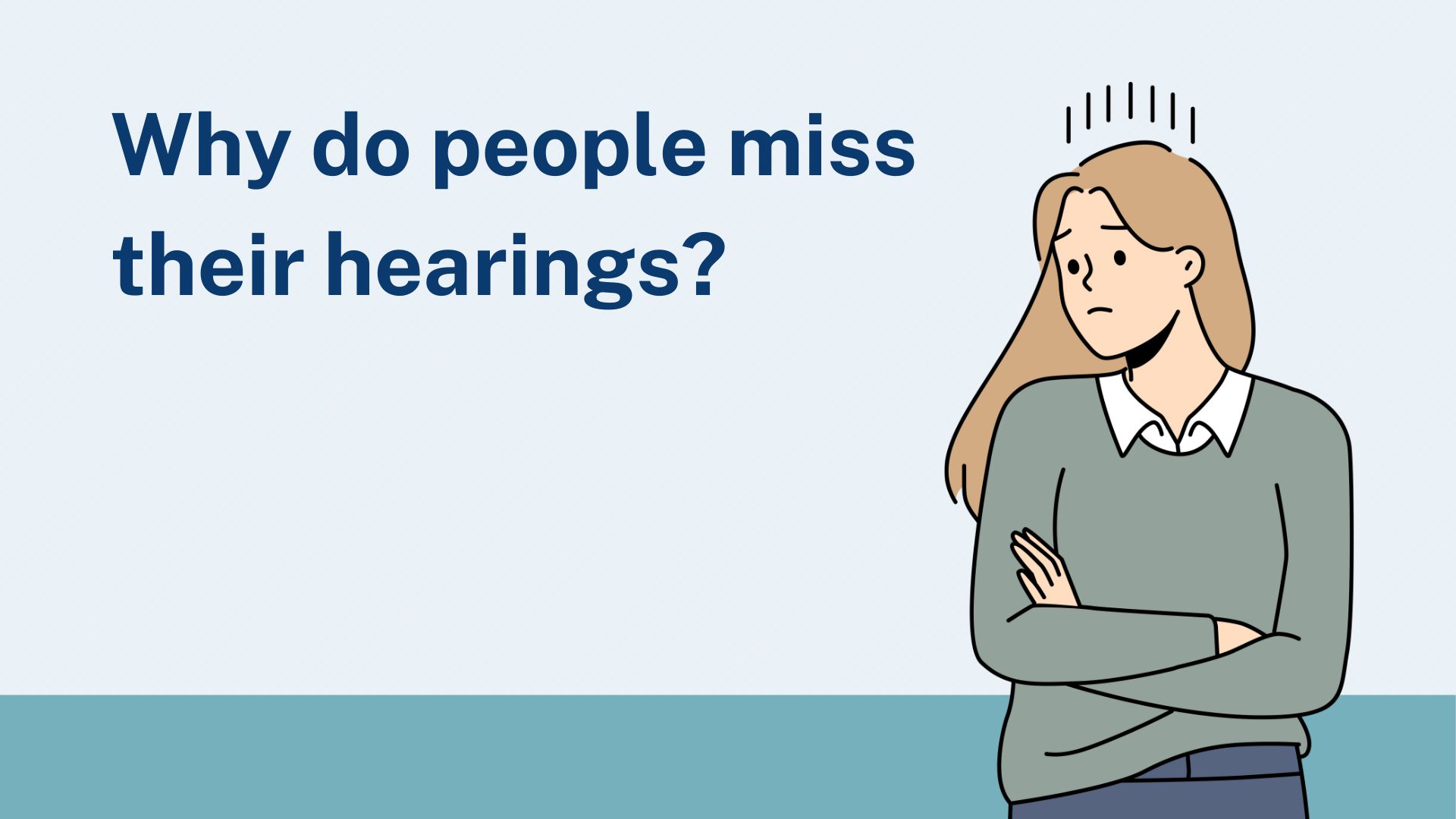NCSC offers tools to improve court appearance rates and access to justice
March 20, 2024 -- Missing a court appearance can result in serious consequences, such as fees, fines, warrants, and even jail time for the parties that fail to appear. It also costs the court and the opposing party time, money, and resources.
for the parties that fail to appear. It also costs the court and the opposing party time, money, and resources.
NCSC’s Access to Justice team has developed several tools for judges and court leaders to improve court appearance rates: an online training module, an easy-to-use diagnostic tool, and an eReminders Toolkit.
“Missed court appearances are bad for courts and court users," said NCSC Court Management Consultant Andy Wirkus. "Understanding why people miss court appointments will help courts implement policies, procedures, and resources to ensure more people show up for their court date."
Appearance Rate Judicial Curriculum
NCSC, with funding from the Pew Charitable Trusts, has developed an online training module for judges and court leaders to learn about the barriers court users face when appearing in court and what courts can do to address this issue and improve appearance rates in their community.
The curriculum explores the real challenges court users face that can lead to missed appearances and provides research and best practices that can combat these barriers, including improving communication with court users, removing practical barriers to access, and modifying policies and procedures to encourage attendance.
The online training module includes video presentations, exercises, and an online self-diagnostic tool.
Appearance Rate Report Card
The Appearance Rate Report Card (AARC) is an online diagnostic tool that courts can use to assess their current policies and practices. The ARRC consists of three sections: communication, access, and policy. It asks questions about current court procedures, practices, and policies to provide customized feedback on how courts can make changes that positively impact appearance rates.
The ARRC is designed based on established methods and emerging research to provide customized scores, explanations, and resources after each section in an easy-to-understand report card format.
eReminders Toolkit
Implementing a reminder system is one way to improve communication with court users that can improve court appearance rates. Electronic reminder systems, known as eReminders, use text messages, emails, and automated phone calls to remind individuals of their court appointments.
NCSC developed an eReminders Toolkit to assist courts in implementing or improving a text, email, or phone reminder system. The toolkit provides an overview of the different types of systems available and highlights important factors to consider when implementing or updating a system.
The toolkit provides step-by-step guidance to help courts assess needs and capacity, scope their projects, identify vendors, collect information from court users, and monitor and evaluate their programs. The guide also addresses legal implications such as user privacy, data security, and best practices for messaging.
Next Steps
“Courts should spend time with these tools to learn about barriers to appear and to identify specific ways their jurisdiction can improve appearance rates,” suggested Wirkus. “These efforts will aid the communities courts serve and can also reduce inefficiencies that cause administrative burdens for court staff.”
Visit the website to learn more about these and other Appearance Rate tools, resources, and technical assistance initiatives. You can also visit the Access to Justice page to schedule a time to meet with our team to discuss initiatives in your jurisdiction and potential collaboration.
Discover ways courts can remain authoritative in a "sea of junk"
Our Tiny Chat hosts, Zach Zarnow and Danielle Hirsch, have created an engaging and informative short story named "Sea of Junk" about AI-generated garbage that looks credible and helpful but isn't. The story explores the challenges AI-generated content can pose for courts and provides insights into how courts can establish themselves as reliable authorities. Watch the Tiny Chat episode to learn more.
